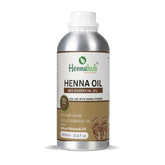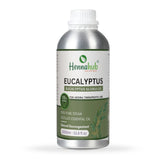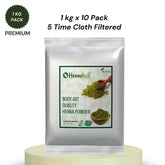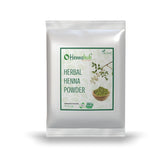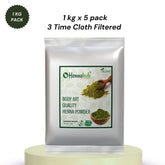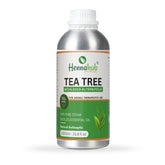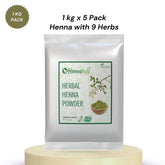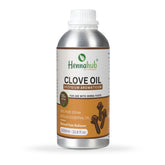Henna Powder vs Chemical Hair Dye: Which is Better for Your Hair
Henna Powder vs Chemical Hair Dye: Overview

Henna Powder: A Natural Choice
Henna powder, derived from the leaves of the henna plant, has been used for centuries for hair coloring. It is known for its natural conditioning properties and ability to impart rich, reddish-brown hues to hair. Henna is a plant-based alternative to synthetic dyes.
Types of Chemical Hair Dyes
Chemical hair dyes encompass a range of synthetic formulations designed to achieve various shades. These dyes contain chemical compounds such as ammonia and peroxide, which penetrate the hair shaft to alter its color.
Pros and Cons of Henna Powder
Benefits of Using Henna Powder
Henna powder offers several advantages:
- Natural conditioning properties
- Adds shine and volume to hair
- No ammonia or harsh chemicals
- Safe for sensitive scalps
Limitations of Henna Powder
Despite its benefits, henna powder has limitations:
- Limited color range (predominantly reddish tones)
- Time-consuming application process
- Potential for uneven coloring
Pros and Cons of Chemical Hair Dye
Advantages of Chemical Hair Dye
Chemical hair dyes provide certain benefits:
- Wide range of color options
- Quick application and color development
- Long-lasting results

Drawbacks of Chemical Hair Dye
However, chemical hair dyes have drawbacks:
- Contains harsh chemicals
- Can cause scalp irritation or allergies
- Requires frequent touch-ups
Impact on Hair Health
Effect of Henna Powder on Hair
Henna powder is renowned for:
- Strengthening hair strands
- Enhancing hair texture
- Preserving natural oils
- Minimizing breakage and split ends
Concerns with Chemical Hair Dyes
Chemical hair dyes may have adverse effects:
- Hair damage due to chemical processing
- Dryness and brittleness over time
- Potential long-term impact on hair health
Application and Usage
How to Apply Henna Powder
Applying henna powder involves a meticulous process:
- Prepare henna paste with water or other natural additives.
- Section hair and apply the paste evenly from roots to tips.
- Allow the paste to set for several hours before rinsing.

Application Process for Chemical Hair Dye
Chemical hair dye application is straightforward:
- Mix the dye according to package instructions.
- Apply directly to hair, starting from roots to ends.
- Follow the recommended processing time before rinsing thoroughly.

Longevity and Color Range
Duration of Color Retention with Henna
Henna color tends to last for several weeks, gradually fading over time.
Versatility of Shades with Chemical Dyes
Chemical dyes offer a broad spectrum of colors, from vibrant reds to subtle blondes, with longer-lasting results compared to henna.
Safety and Side Effects
Allergic Reactions to Henna
Some individuals may experience allergic reactions to henna, especially if they have sensitivities to botanical compounds.
Health Risks Associated with Chemical Dyes
Chemical dyes pose health risks, including:
- Skin irritation or burns
- Potential carcinogenic properties of certain chemicals
- Risks associated with inhaling fumes during application
Environmental Impact
Eco-Friendliness of Henna
Henna is a natural, biodegradable product that minimizes environmental impact.

Environmental Concerns with Chemical Dyes
Chemical dyes contribute to water pollution and environmental degradation due to synthetic components.
Cost Comparison
Affordability of Henna Powder
Henna powder is generally cost-effective, especially when purchased in bulk.
Cost Considerations with Chemical Dyes
Chemical dyes vary in price based on brand and quality, with premium formulations commanding higher prices.
Customer Satisfaction and Reviews
User Experiences with Henna
Many users appreciate henna for its natural conditioning and color-enhancing properties.
Consumer Feedback on Chemical Dyes
Chemical dyes receive mixed reviews, with concerns about long-term hair health and potential side effects.
Myth Debunking
Common Misconceptions About Henna
- Henna is only suitable for red hair.
- Henna cannot cover gray hair effectively.
Clarifying Myths Related to Chemical Hair Dyes
- Chemical dyes always cause severe hair damage.
- All chemical dyes contain harmful ingredients.
Choosing the Right Option
Factors to Consider for Individual Hair Types
Consider hair type, color preference, and sensitivity when choosing between henna and chemical dyes.

Personal Preferences and Lifestyle Choices
Align hair care choices with personal values, such as natural beauty practices or color versatility.
Conclusion
In conclusion, the choice between henna powder and chemical hair dye depends on individual preferences, desired outcomes, and considerations for hair health and environmental impact. While henna offers natural benefits and conditioning properties, chemical dyes provide a broader color spectrum and convenience. Make an informed decision based on your hair type, lifestyle, and values to achieve vibrant, healthy hair.
FAQs
-
Is henna powder safe for all hair types? Yes, henna is generally safe for most hair types, but it's advisable to conduct a patch test to rule out allergies.
-
How often should I apply chemical hair dye? The frequency of chemical dye application depends on hair growth and color retention. It's recommended to follow product instructions.
-
Can henna cover gray hair effectively? Henna can cover gray hair; however, multiple applications may be needed for intense coverage.
-
What should I do if I experience an allergic reaction to henna? Discontinue use immediately and consult a healthcare professional for appropriate treatment.
-
Are there eco-friendly alternatives to chemical hair dyes? Yes, individuals can explore plant-based or vegetable dyes as eco-friendly alternatives to chemical hair dyes.
-
How can I maintain vibrant hair color with henna? Use sulfate-free shampoos and conditioners to preserve henna color and minimize fading.
External Links and Resources: For more information on Henna powder and natural hair care, visit this reputable supplier.
#henna #chemicalhairdye #naturalhaircare #haircolor #hairdye #haircaretips #hairhealth #haircoloring #hennahair #hairdyeing #naturalbeauty #organicbeauty #haircareproducts #sustainablebeauty #haircarecommunity #healthyhair #haircolorideas #haircolortrends #veganbeauty #ecofriendlybeauty #heenastore #hennahub

